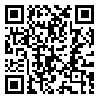Volume 3, Issue 2 (8-2020)
2020, 3(2): 0-0 |
Back to browse issues page
Ethics code: IR.MEDILAM.REC.1397.17
Download citation:
BibTeX | RIS | EndNote | Medlars | ProCite | Reference Manager | RefWorks
Send citation to:



BibTeX | RIS | EndNote | Medlars | ProCite | Reference Manager | RefWorks
Send citation to:
Mozafari M, Rostami A, Abanghah G, Khorshidi A. The effect of short-term educational program on endoscopic candidate readiness. Journal title 2020; 3 (2)
URL: http://newresearch.medilam.ac.ir/article-1-1028-en.html
URL: http://newresearch.medilam.ac.ir/article-1-1028-en.html
Department of Nursing, School of Nursing and Midwifery, Ilam University of Medical sciences, Ilam, Iran
Abstract: (7516 Views)
Review: The gastrointestinal tract is prone to disease due to high activity, poor eating habits, stress and environmental stresses, which impose costs on individuals and society. Endoscopy as an intervention that recognizes the disease before it stabilizes is effective in increasing survival and lowering the cost of treatment for patients; however, this procedure has some complications. Training was evaluated as an intervention to reduce endoscopic complications
Aims: The purpose of this study was to determine the effect of a short-term training program on endoscopic candidate readiness, colon cleansing quality, and endoscopic candidate anxiety
Methods: The study was conducted on 70 patients (age range 35-60) who had gastrointestinal endoscopy. The research tools were 1-Spielberger Anxiety Inventory (STAI), 2-Endoscopic readiness and 3-Colon Cleansing Quality. The data were then analyzed by SPSS V20 software.
Results: The sample consisted of 41 men and 29 women who were mostly employed, married, with a degree or higher. Most specimens had high levels of anxiety the day before endoscopy. After training in the experimental group, the endoscopic readiness was high (in the experimental group, 105.8 (5.6) and 62.6(7.8) in the control group), and the anxiety was significantly reduced (14% of the experimental group had severe anxiety and in the control group 71.4% had severe anxiety); Colon cleansing quality in the experimental group was significantly higher than the control group (experimental group 58.3(0.7) and in the control group 25.2 (0.6)).
Aims: The purpose of this study was to determine the effect of a short-term training program on endoscopic candidate readiness, colon cleansing quality, and endoscopic candidate anxiety
Methods: The study was conducted on 70 patients (age range 35-60) who had gastrointestinal endoscopy. The research tools were 1-Spielberger Anxiety Inventory (STAI), 2-Endoscopic readiness and 3-Colon Cleansing Quality. The data were then analyzed by SPSS V20 software.
Results: The sample consisted of 41 men and 29 women who were mostly employed, married, with a degree or higher. Most specimens had high levels of anxiety the day before endoscopy. After training in the experimental group, the endoscopic readiness was high (in the experimental group, 105.8 (5.6) and 62.6(7.8) in the control group), and the anxiety was significantly reduced (14% of the experimental group had severe anxiety and in the control group 71.4% had severe anxiety); Colon cleansing quality in the experimental group was significantly higher than the control group (experimental group 58.3(0.7) and in the control group 25.2 (0.6)).
Conclusion: Considering the role of education in preparing for endoscopic candidiasis and decreasing anxiety, it is recommended to use an effective, non-pharmacological and inexpensive intervention model designed and implemented in this study
Received: 2020/05/26 | Accepted: 2020/08/28 | Published: 2020/08/31
Send email to the proposal executer
| Rights and permissions | |
 | This work is licensed under a Creative Commons Attribution-NonCommercial 4.0 International License. |






